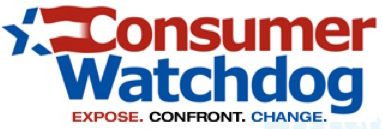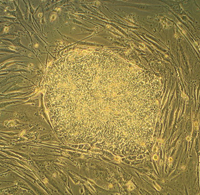 Last month, Consumer Watchdog filed its opening brief in an appeal of a Board decision affirming the patentability of U.S. Patent No. 7,029,913, arguing that the claims of the '913 patent are invalid because they cover ineligible subject matter and were anticipated and obvious. The appeal arises from an inter partes reexamination of the '913 patent that Consumer Watchdog, which describes itself as a not-for-profit public charity dedicated to providing a voice for taxpayers and consumers in special interest-dominated public discourse, government and politics, filed in 2006. The '913 patent, which is assigned to the Wisconsin Alumni Research Foundation (WARF), has three claims. According to the Consumer Watchdog brief, independent claim 1 (as amended by WARF during the reexamination) recites:
Last month, Consumer Watchdog filed its opening brief in an appeal of a Board decision affirming the patentability of U.S. Patent No. 7,029,913, arguing that the claims of the '913 patent are invalid because they cover ineligible subject matter and were anticipated and obvious. The appeal arises from an inter partes reexamination of the '913 patent that Consumer Watchdog, which describes itself as a not-for-profit public charity dedicated to providing a voice for taxpayers and consumers in special interest-dominated public discourse, government and politics, filed in 2006. The '913 patent, which is assigned to the Wisconsin Alumni Research Foundation (WARF), has three claims. According to the Consumer Watchdog brief, independent claim 1 (as amended by WARF during the reexamination) recites:
1. (Amended) A replicating in vitro cell culture of pluripotent human embryonic stem cells derived from a pre-implantation embryo, wherein the stem cells (i) will proliferate in an in vitro culture for over one year in an undifferentiated state without the application of exogenous leukemia inhibitory factor, (ii) maintain a karyotype in which the chromosomes are euploid through prolonged culture, (iii) maintain the potential to differentiate to derivatives of endoderm, mesoderm, and ectoderm tissues throughout the culture, and (iv) are inhibited from differentiation when cultured on a fibroblast feeder layer.
 After the Patent Office granted Consumer Watchdog's request for an inter partes reexamination (Control No. 95/000,154), the Examiner determined that the pending claims were allowable, and Consumer Watchdog appealed to the Board. The Board reversed, designating four news grounds of rejection (one anticipation rejection and three different obviousness rejections), and WARF responded by filing a request to reopen prosecution along with an amendment and a declaration. The Examiner determined that the claims were patentable over the Board's rejections, and the Board affirmed. Consumer Watchdog's appeal to the Federal Circuit followed.
After the Patent Office granted Consumer Watchdog's request for an inter partes reexamination (Control No. 95/000,154), the Examiner determined that the pending claims were allowable, and Consumer Watchdog appealed to the Board. The Board reversed, designating four news grounds of rejection (one anticipation rejection and three different obviousness rejections), and WARF responded by filing a request to reopen prosecution along with an amendment and a declaration. The Examiner determined that the claims were patentable over the Board's rejections, and the Board affirmed. Consumer Watchdog's appeal to the Federal Circuit followed.
In addition to arguing that the '913 patent is invalid as anticipated or obvious in view of the references on which the Board based its new grounds of rejection, Consumer Watchdog also argues that the claims of the '913 patent are invalid under § 101. In particular, the brief states:
As a threshold matter, the claims of the '913 patent are invalid under 35 U.S.C. § 101 for claiming subject matter that is not patent eligible. Specifically, the claimed hES [human embryonic stem] cell culture falls within the "product of nature" exception to statutory subject matter. It is within the Court's discretion to address this issue despite the fact that the Board failed to address it below, and is especially appropriate in light of the recent Supreme Court ruling on Section 101 in Ass'n. for Molecular Pathology v. Myriad Genetics, Inc.. 2013 U.S. LEXIS 4540 (June 13, 2013).
Noting that "[t]he Supreme Court restated [in June] that discovery and isolation of a product that occurs in nature does not render that product patent eligible under Section 101," the brief attempts to draw analogies between its appeal and the Myriad case. For example, the brief states that "[a]s in AMP, the '913 patent's claims are drawn to neither a method of preparation nor a scientific application of the claimed composition." The brief also suggests that:
The '913 patent's requirement that the claimed culture of cells be in vitro is analogous to the claim limitation in AMP that the DNA be "isolated." But here there is not even a chemical change between ES cells in an in vivo embryo and ES cells in an vitro culture as there is between human DNA in vivo and isolated DNA in vitro.
 The brief also notes that "[t]he '913 patent does not in any way distinguish the claimed ES cells from those that exist in nature," adding that "if the claimed ES cells were not the same as natural ES cells, the claimed invention would offer very little benefit for medical research." As the brief argues, "WARF did not create or alter the properties inherent in stem cells any more than Myriad created or altered the genetic information encoded in the DNA it claimed."
The brief also notes that "[t]he '913 patent does not in any way distinguish the claimed ES cells from those that exist in nature," adding that "if the claimed ES cells were not the same as natural ES cells, the claimed invention would offer very little benefit for medical research." As the brief argues, "WARF did not create or alter the properties inherent in stem cells any more than Myriad created or altered the genetic information encoded in the DNA it claimed."
Although "[t]he Board never considered whether the claims to hES cells are patent eligible subject matter," the brief contends that "the Court may still consider whether the claims here are invalid under Section 101 because, 'a court may consider an issue antecedent to . . . and ultimately dispositive of the dispute before it, even an issue the parties fail to identify and brief,'" citing U.S. Nat'l Bank v. Indep. Ins. Agents, 508 U.S. 439, 447 (1993). With respect to the issue of patent eligibility, the brief states that "[c]onsideration of the 101 question is especially appropriate in light of the fact that the Supreme Court's recent AMP decision came after the Board's decision here."
WARF now has until August 12 to file its opening brief in the appeal.